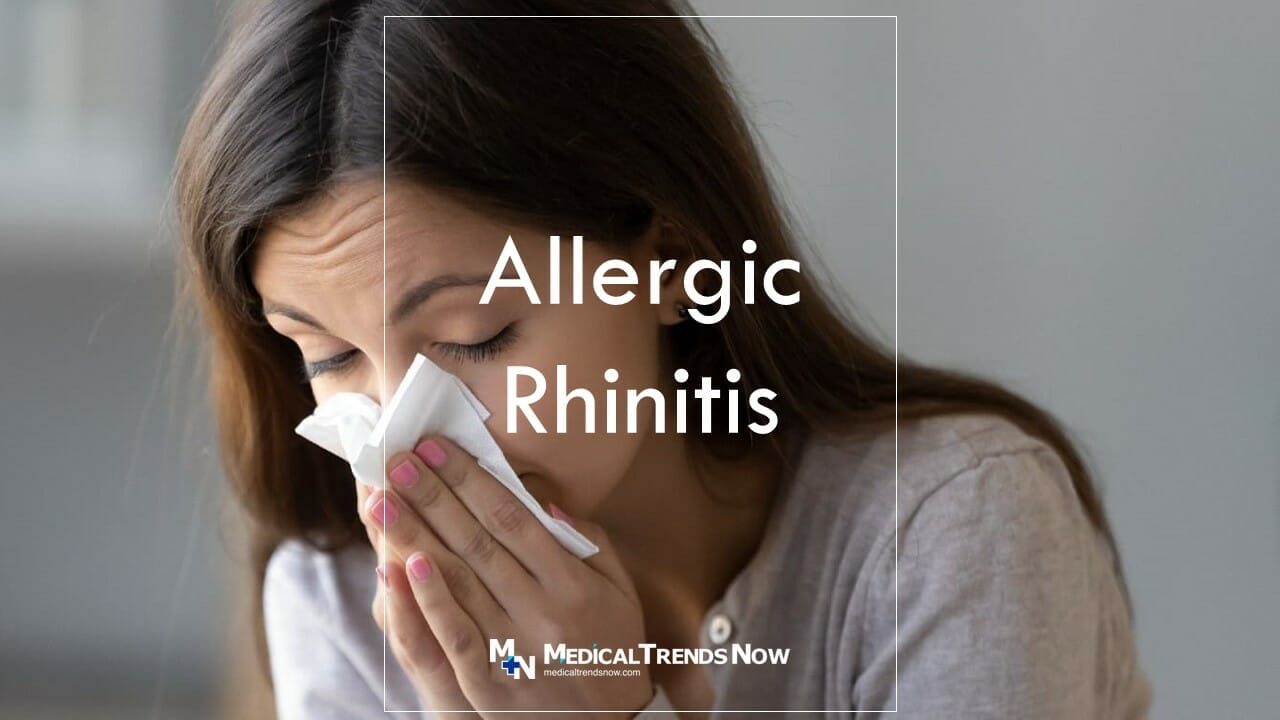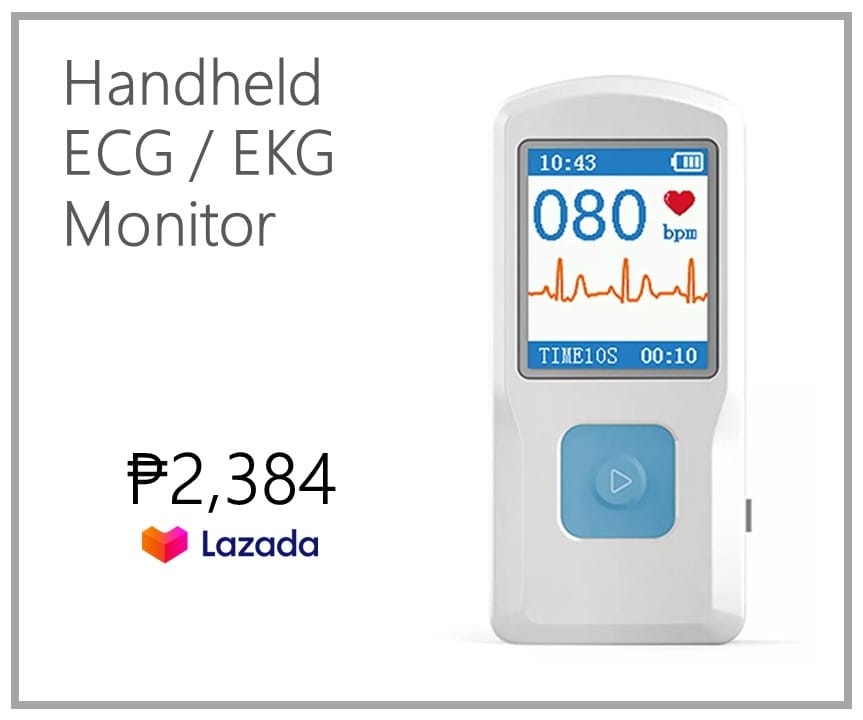Table of Contents
Allergic rhinitis is a type of allergic reaction that can cause itchy, watery eyes and a runny nose. It can also cause swelling in the face and lips. It is a very common condition that affects the nose and sinuses. It occurs when the immune system overreacts to certain allergens like dust, pollen, or pet dander. An allergic rhinitis attack can be uncomfortable and disruptive. Fortunately, there are ways to prevent and treat an attack of the condition. In this article, we will provide some useful tips for dealing with an allergic rhinitis attack.
What Is An Allergic Rhinitis?
Allergic Rhinitis, also called Seasonal allergy, is a diagnosis connected to a set of nose-related symptoms. These signs appear when you breathe in an allergen, such as pollen, dust, or animal dander. When you consume a food to which you are allergic, symptoms may also appear.
Allergic rhinitis, also known as hay fever, is a common condition that affects millions of people worldwide. It occurs when the body’s immune system overreacts to certain allergens in the environment. Symptoms can include sneezing, itchy eyes and nose, watery eyes, congestion, and fatigue. Allergic rhinitis can be perennial, depending on the allergen causing it.
Seasonal allergic rhinitis attack typically occurs during spring and fall due to pollens from trees and grasses. Perennial allergic rhinitis is caused by indoor allergens like dust mites or pet dander that are present year-round. It is important for those with allergic rhinitis to identify their triggers so that they can avoid them or take measures to reduce exposure.
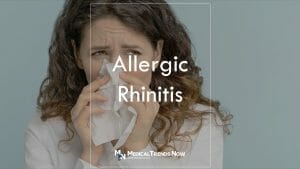
What Are The Symptoms Of An Allergic Rhinitis Attack?
Allergic rhinitis symptoms may vary from person to person, but they generally include one or more of the following:
Sneezing
This is the most common symptom of allergic rhinitis. It often happens when you breathe in things that cause an allergic reaction.
Itching
This may occur all over your body, including your nose, eyes, and mouth.
Watery eyes
You may also experience a sore throat, headache, and feeling of being stuffed up.
A runny nose
This is one of the most common symptoms of allergic rhinitis. When you have an allergic rhinitis attack, your nose may become congested, and it may also produce mucus.
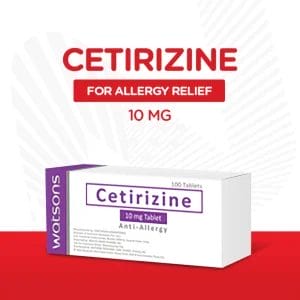
Swelling of the face
This can include puffiness around the eyes, cheeks, or lips.
Red eyes
This is a common side effect of an allergic rhinitis attack. When the allergen enters your eye, it can cause a reaction that results in redness and watering.
Nosebleeds
A nosebleed is a blood vessel that ruptures in the nasal area, usually because of the inflammation from an allergic rhinitis attack.
Itchy nose
An itchy nose is another common symptom of allergic rhinitis. This may be caused by the inflammation from an allergic rhinitis attack or the pollen, dust, or animal dander that is causing your reaction.
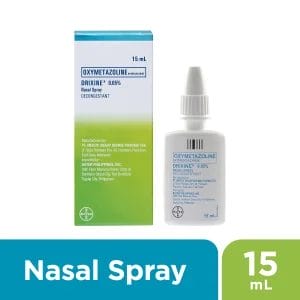
Nasal congestion
When you have an allergic rhinitis attack, your nose may become congested, and it may also produce mucus.
Sneeze reflex
When you sneeze, your facial muscles contract and push the allergen up into your nose, this can result in a runny nose and an allergic rhinitis attack.
Trouble breathing
People with allergies often have trouble breathing because of the inflammation and congestion in their noses. This can make it difficult to exercise, work, or sleep.
Headache
One of the most common symptoms of allergic rhinitis is a headache. This may be caused by the allergen entering your brain and initiating a headache.
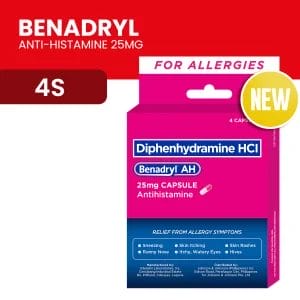
Tiredness
Being treated for allergic rhinitis can be tiring, especially if you have to take medication every day.
Drowsiness
When you have an allergic rhinitis attack, you may feel tired and drowsy.
Brown discharge from the nose
This is called nasal discharge, and it may be one of the earliest signs of an allergic rhinitis attack.
Weight gain or loss – People with allergies are more likely to gain or lose weight because of the medication they take and the foods they avoid.
Chest pain
Chest pain is one of the most common symptoms of an allergic rhinitis attack. This may be caused by the inflammation and congestion in your nose or by the allergen entering your heart and initiating a heart attack.
![PROLIX Prednisone 20 mg 1 tablet [PRESCRIPTION REQUIRED] Watsons Pharmacy](https://e52hyu4yuyt.exactdn.com/wp-content/uploads/2022/12/PROLIX-Prednisone-20-mg-1-tablet-PRESCRIPTION-REQUIRED-Watsons-Pharmacy-300x259.jpg?strip=all&lossy=1&ssl=1)
When you have an allergic rhinitis attack, you may have strong food cravings. This could be anything from simple carbohydrates to unhealthy foods.
Skin rash
When the inflammation from an allergic rhinitis attack is severe, it can cause a skin rash that can cover your entire body.
Brain fog
When you have an allergic rhinitis attack, you may experience brain fog. This is a loss of focus and concentration that can last for hours after the allergic reaction has stopped.
Insomnia
When you have an allergic rhinitis attack, it can be difficult to fall asleep. This is because the congestion and inflammation in your nose keep you awake.
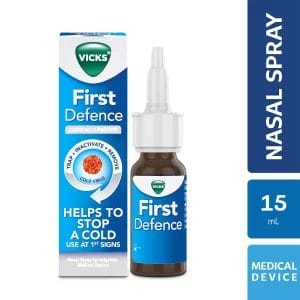
Feeling of dread
Many people with allergies feel a sense of dread when they are about to have an allergic rhinitis attack. This is because they know all the symptoms, and they don’t know how the attack will end.
Cramps
When the inflammation from an allergic rhinitis attack is severe, it can cause cramps. These can vary in severity and can last for hours.
Nausea and vomiting
When you have an allergic rhinitis attack, you may experience nausea and vomiting. This is because the allergen is entering your stomach and triggering the gag reflex.
Hair loss
When you have an allergic rhinitis attack, you may lose hair. This is because the inflammation in your nose causes your scalp to become red and irritated.
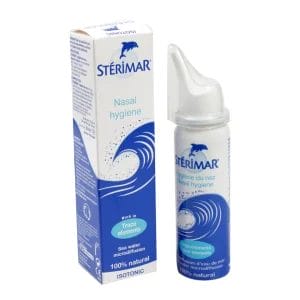
Allergic Rhinitis Symptoms Summary
An allergic rhinitis attack is a period when the symptoms are at their worst, making it difficult to breathe or concentrate. Knowing the signs and understanding how best to manage an allergic rhinitis attack can be very beneficial in avoiding long-term problems.
The most common symptom of an allergic rhinitis attack is sneezing, usually in rapid succession, accompanied by a runny nose and watery eyes.
Nasal congestion is also experienced during this time, along with coughing, throat irritation, swollen eyelids, feeling tired, or experiencing headaches. In extreme cases of severe allergies, asthma attacks may even occur due to the inflammation of airways caused by allergen exposure.
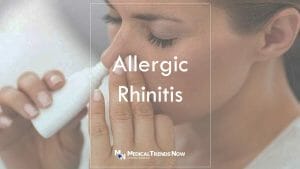
Causes of An Allergic Rhinitis Attack
Allergic rhinitis is a type of rhinitis (inflammation of the nasal passages) that is caused by an allergic reaction to something you come into contact with on a daily basis, such as:
- Seasonal changes in weather, such as pollen levels in the air
- Pets, such as cats and dogs
- Environmental allergens, such as mold
- Food items, such as milk, eggs, peanuts
- Medications, such as over-the-counter medications and some antibiotics
Knowing the triggers for an allergic rhinitis attack can help you take preventive measures and avoid it altogether.
The most common causes of an allergic rhinitis attack are exposure to airborne allergens such as pollen or pet dander. Other triggers can include certain foods, medications, fragrances, or smoke in the air. Pollen levels tend to be higher during certain times of the year when plants are blooming, and windy days may worsen symptoms due to increased airborne particles in the air.
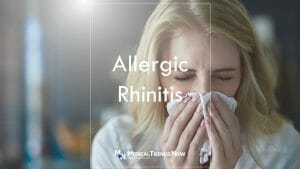
Treatment For An Allergic Rhinitis Attack
Thankfully there are treatments available for an allergic rhinitis attack that will help to reduce these symptoms and make life more comfortable for those suffering from such allergies.
The most effective treatment for an allergic rhinitis attack is first to identify the trigger or allergens responsibly and then remove them from your environment as much as possible. If this isn’t possible, then medications such as antihistamines can be taken to control the symptoms associated with the allergy.
Common treatments include:

- Over-the-counter antihistamines, such as cetirizine or fexofenadine.
- Nasal corticosteroids, such as prednisone (Prednisone) or fluticasone propionate (Flonase)
- Oral immunotherapy, which uses allergen extracts to help the body build resistance to the allergen
- Antihistamines that don’t require a prescription, such as levocetirizine (Levcator) or olopatadine hydrochloride (Patanase)
- Allergy shots.
- Surgery to remove the allergen from the environment
- Allergy dietetics, which focuses on balanced and healthy eating to reduce allergic reactions
- Alternative medicine, such as homeopathy or naturopathy.
- Homeopathy – A homeopathy is a form of alternative medicine that uses tiny doses of substances to treat illness. Homeopathic remedies are usually made from plant, mineral, or animal extracts.
- Naturopathy – Naturopathy is a type of alternative medicine that focuses on the use of natural ingredients and techniques to improve overall health.
- Sleep hygiene to improve sleep quality and reduce allergic symptoms
- Stress management techniques
- Exercise
- Daily rituals, such as using a humidifier in the bedroom or keeping a pollen-free environment at home
- Use of air purifiers
- Avoiding exposure to allergens when possible
- Coping with stress
- Seeking professional help
![NASOFLO Fluticasone propionate Aqueous Nasal spray 120 Sprays [PRESCRIPTION REQUIRED] Watsons Pharmacy](https://e52hyu4yuyt.exactdn.com/wp-content/uploads/2022/12/NASOFLO-Fluticasone-propionate-Aqueous-Nasal-spray-120-Sprays-PRESCRIPTION-REQUIRED-Watsons-Pharmacy-300x300.webp?strip=all&lossy=1&ssl=1)
There are several types of treatments available for managing allergies, such as antihistamines, decongestants, nasal sprays, and corticosteroids. Antihistamines are usually taken orally or in the form of eye drops in order to block histamine receptors in the body that cause the inflammation associated with allergies. Decongestants reduce swelling in the nose and sinuses by shrinking blood vessels around them. Nasal sprays contain corticosteroid medications that reduce inflammation and irritation caused by allergens found in the airways.
What Are The Possible Home Remedies for Allergic Rhinitis Attack?
The best course of action is to stay away from the pollen that is making you sick. You might not be able to avoid pollen completely. But there are often things you may do to lessen your exposure.
For the treatment of allergic rhinitis, you might be given medication. Your symptoms and how severe they are will determine the medication your doctor recommends. We will also take into account your age and any additional health issues you may have, including asthma.
A nasal wash can help clear the nose of mucus if you have mild allergic rhinitis. A saline solution can be purchased at a pharmacy or made at home using 1 cup (240 milliliters) of warm water, 3 grams of salt, and a pinch of baking soda.
Natural Remedies for Allergic Rhinitis Attack
If you’re an allergy sufferer, you know how unpleasant and uncomfortable the symptoms of an allergic rhinitis attack can be. Fortunately, there are natural remedies that can help to reduce inflammation and provide relief from nasal congestion, sneezing, and itchy eyes. From teas to essential oils, these natural remedies may provide some much-needed relief during a flare-up.
Herbal teas like chamomile, nettle, and peppermint are popular choices for treating allergies as they contain anti-inflammatory properties which help reduce swelling in the nasal tissue. Likewise, aromatherapy using essential oils such as eucalyptus and lavender can also bring about relief by reducing inflammation in the airways and providing calming effects on the body’s immune system response. These natural remedies may not completely eliminate allergic reactions but could offer some much-needed symptom relief during an episode.
How To Prevent An Allergic Rhinitis Attack?
Fortunately, there are ways you can prevent an allergic rhinitis attack before it starts.
The first step is to avoid exposure to airborne allergens that may trigger your symptoms. This means staying indoors when the pollen count is high and wearing a mask if you must go outside. You can also reduce the presence of dust mites in your home by regularly vacuuming carpets and washing bedding in hot water often.
Additionally, avoiding animals with fur or feathers will help minimize your exposure to pet dander which can be an allergy trigger for many people with rhinitis.
Here are ways to prevent an allergic rhinitis attack:
Avoid allergens:
If you know you are allergic to something, avoid contact with that allergen as much as possible.
Get exercise:
Exercise has been shown to improve symptoms in people with allergies.
Use antihistamines:
Antihistamines can help reduce symptoms of an allergic reaction. However, they should only be used if prescribed by a doctor.
Drink plenty of fluids:
Fluid intake helps to reduce symptoms of an allergic reaction and can help to relieve congestion and headaches.
Take over-the-counter medications as directed:
Over-the-counter medications can help relieve symptoms of an allergic reaction, but they should only be used if prescribed by a doctor.
Use nasal corticosteroids:
Nasal corticosteroids, such as prednisone (Prednisone) or fluticasone propionate (Flonase), can help to relieve symptoms of an allergic reaction in some people.
Seek medical attention:
If symptoms persist or if they are severe, seek medical attention.
When To Contact A Medical Professional
If you are experiencing severe or persistent symptoms, it is important to seek medical attention. An allergist in the Philippines can help to determine the cause of your symptoms and develop a treatment plan. If you have a history of severe reactions, you may be prescribed an Epi-Pen or other emergency medication. It is important to follow your treatment plan and carry your emergency medication with you at all times.
Final Thoughts
In conclusion, having an allergic rhinitis attack can be a difficult experience for Filipinos. By following the tips outlined in this article, you can take the necessary steps to prevent and treat these attacks. Firstly, identify and avoid the allergens that cause allergic reactions. Secondly, keep your environment clean and use an air purifier to reduce airborne allergens. Thirdly, practice good hygiene practices such as washing hands often and avoiding touching your face with unwashed hands.
Sources
Disclaimer
This website is intended to educate both members of the general public and those working in the medical field on the prevalence, causes, and methods for preventing, diagnosing, and treating diseases that affect people throughout their lives. This website’s content is provided solely for informational reasons and is not meant to serve as a substitute for the advice of a qualified medical practitioner.

